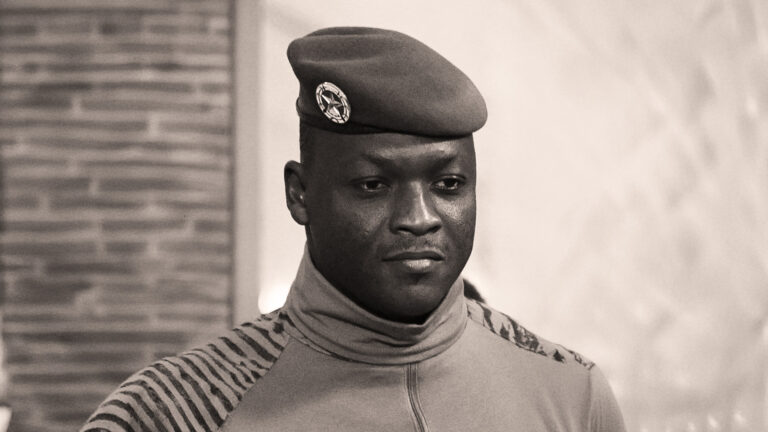Human beings are:
- Nothing more than advanced apes
- Just like machines
- Weak
- Eternal.
These are a few visions that have been proposed for what it means to be human. Drilled down to their most basic elements, they are guided by certain assumptions about life. Swiping through our social media headlines, wars, technological innovations, scientific discoveries, political unrest, and religious teachings all provide real life outcomes of where these varied visions take us. These different worldviews each make a claim about what it means to be human.
The biblical storyline casts a wider vision for life.
In this article, I want to present a biblical portrait of what it means to be human and how this can help us to make sense of life’s complexities, but to also live with hope for the future. I do this by tracing one of the most basic but also profound plot lines of the Bible: creation, fall, redemption, consummation.
Creation: Everything Is Good
The first two chapters of Genesis answer our deepest concerns about where we come from. While debates rage around making sense of the doctrine of creation and the scientific theory of evolution, in an elementary sense, Genesis 1-2 are helpful for contemporary living. Set in the context of other Ancient Near Eastern (ANE) myths and traditions, these opening pages present the following truths of the Christian life. They teach that God:
- Is sovereign over all of life (Genesis 1:1-3)
- Has a vision for the created universe of perfection, beauty and goodness (Genesis 1:31)
- Desires to relate with human beings in a special and personal way (Genesis 1:26-28)
- Has granted human beings the privilege of stewarding all of creation (Genesis 1:28; 2:1-3)
Fall: Sin Affects Everything
In our war-torn, poverty-stricken, guilt-ridden, and perverted world, what is the primary problem? While there continues to be a place for political analysis, formulation and implementation that can ensure the well-being of our societies, the problem runs deep in the human soul or heart—the central place that shapes how we engage with all of life. Genesis 3 is both an interesting and saddening story, as it reveals what plagues human beings. In our pride, we have rebelled against our Creator and want to do life without him.
We have rebelled against our Creator and want to do life without him.
What intrigues me most about Genesis 3 is that this subtle yet damning distortion of Gods vision, doesn’t begin from a red-horned devil but from a hidden motive of discarding God’s word. “Did God really say?” (Genesis 3:1). The ensuing discussions with the enemy of God and his people goes south. In this short passage, we see the two extremes or two postures that often lead us astray: adding to God’s word (“you must not touch it” in Genesis 3:3); and subtracting from God’s word (“you must not eat from any tree” also in Genesis 3:3).
But if we look closer at God’s commands to Adam and Eve, they could eat from any tree except the one in the middle of the garden (Genesis 2:16-17). Eve adds “touching” and Satan expands the prohibition. The story ends with shame, guilt and curses; a life far removed from God’s intention. Adam, Eve and the serpent suffer the consequences of their actions. Furthermore, the entire creation is affected by humanity’s disobedience and pride (Genesis 3:14-19). We are left wondering, is there redemption?
Redemption: Jesus Changes Everything
The story of the Israelites contains periods where God’s word is scarce. Thus God has to raise up judges and kings to rule, and prophets to speak (1 Samuel 3:1-10; Judges 21:25; Deuteronomy 18:15-18). The Old Testament system is meant to be a prototype, envisioning God’s people with God’s word at the centre of all they do (Isaiah 55:11; Exodus 37).
God will bring his good work to its perfect and glorified end.
This plan finds its fulfilment in his Word coming to dwell with his people (John 1:12-14). God also renews his covenant with mankind, not in the outward institutions of the Old Testament but inside the hearts of human beings (2 Corinthians 3:11, 16-18). So the coming of Jesus Christ changes everything, as he:
- Takes away the guilt of sin
- Changes us from the inside
- Gives us new life
- Shows us true humanity.
Consummation: the End of Everything
But you know what, better things are coming.
Let me put it this way: movies are supposed to be watched till the end. If you stop watching the movie in the middle, you will not understand and appreciate the plot-line; you’ll leave with a distorted view of how it concludes. Let me give one example of how we stop the Christian plot-line halfway. There are some teachings that emphasise that since we are now in Christ, everything is perfect. So if we get sick, or suffer trials, there must be a problem with our faith. This is an example of how we stop the plot-line halfway, distorting our view of life.
Without the end in view, believers aren’t helped or consoled when going through pain and trials. It also curtails the development of strong faith that grows in suffering and is part of the promised plot-line of the Christian life (John 16:33; 1 Peter 1:7; James 1:2-4). But the good news is that while God has started his good work in our lives and world through Jesus Christ, he will bring it to its perfect and glorified end (1 John 3:1-3; Revelation 21-22). At that time our:
- Progressive struggle with sin will give way to the perfect victory over sin
- Experiences of pain, trials and tears, end in a world where suffering is not part of the vocabulary
- Half-hearted ecological interventions give way to the new heavens and new earth
- Daily hustle and work, pave the way into a permanent lifestyle of true worship—not just singing.
So what does this all mean? Grasping the big picture of what it means to be human puts things in their proper perspective. It also gives us wisdom, courage and hope to live the Christian life in its fullest sense.
Three Implications, Full of Hope
1. You Matter, You’re Precious to God
The fact that our origin as human beings is God himself means that we are created with inherent dignity and purpose. This means that our value does not come from external things we do or possess, but from our relationship with God. This speaks hope to us who find ourselves on the other side of popularity, acclaim, power arrangements and false distinctions of class, education or wealth. This also deeply inspires our work in seeking to dignify people who face various injustices and suffering, but also to live in humility.
2. You Are a Worshipper
In our multi-religious and pluralistic world, we live with neighbours and work with colleagues who believe differently than we do. Some claim they don’t believe, but we know from many of their claims and how they respond to their lives’ circumstances, that they believe in something. Human beings are created as worshiping beings, the only difference is not whether we worship, but who we worship. Nonetheless, we need to treat our neighbours and colleagues with respect, dignity and love. That being said, life shows us the distinction between other gods and Jesus Christ of Nazareth. For his claims to divinity and his powerful works continue to confound humanity, drawing a strong distinction to other religious leaders—both in history and in our contemporary times.
Each of us must assess the claims of Jesus individually.
No matter how loud the shouts from the world, we still stand with the testimony of those mighty believers of old: “There is salvation in no one else, for there is no other name under heaven given among men by which we must be saved” (Acts 4:12). From the years I have given to studying theology, I have not seen any religious leader who claimed to be God and who offered people a restored relationship with God. Each of us must assess the claims of Jesus individually.
3. You Can Rest
In a world that stresses us, living with people who fail us, going through experiences that depress us, where do we find hope? The biblical plot-line gives real and tangible hope. Because we know how the story ends. Because of how the story ends we can push through. You can take a step forward. You can fight with sin. We can serve God together. You can love your neighbours. We can look up and ahead. Our hope does not lie in our own strength or capacities against all the forces of darkness, our hope lies in the one who is coming again.
A Biblical Vision for All of Life
The other narratives that liken us to apes and robots, are short-sighted in their bigger vision of life and their future is dependent on human capability, which according to history falls woefully short.
We can wipe our tears and face life with the hope that we have in Christ.
The biblical vision is both realistic and hopeful. It tells us where we come from, what’s wrong, how things are being made right and where we are going. If you look at any of life’s realities through this lens, you will see that the biblical storyline casts a wider vision for life. We can wipe our tears, wear our boots and smiles, and face life with the hope that we have in Christ.














